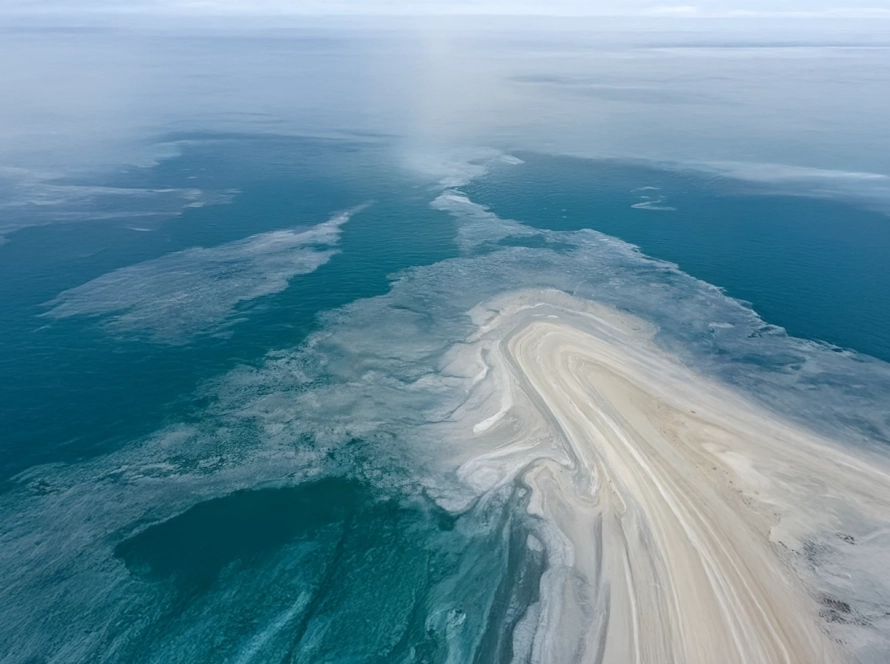When summer arrives, we usually think about vacations and escaping into nature. But over the past few years, summer has also brought something heartbreaking: forest fires. Every year, thousands of hectares of forest are reduced to ash. Countless animals lose their homes—or even their lives. And we watch the news with heavy hearts.
In this article, let’s talk about why forests are so vital, what causes wildfires, and most importantly how each of us can help prevent them.
Türkiye’s Most Beautiful Forests
Türkiye is one of the luckiest countries when it comes to natural beauty. From the lush green plateaus of the Black Sea to the iconic red pine forests of the Mediterranean, every region offers a unique landscape. Some standouts include:
- Yenice Forests (Karabük): Listed among Europe’s most valuable forests, with massive beech trees and air rich in oxygen.
- Mount Ida (Kazdağları – Balıkesir & Çanakkale): Known as the “lungs of Türkiye”, home to endemic plants and mythological tales.
- Olympos – Beydağları National Park (Antalya): Where forest meets sea and ancient ruins hide under the pine trees.
- Karagöl Forests (Artvin): A hidden paradise with glacial lakes and deep valleys in the Eastern Black Sea region.
Why Are Forests So Important?
A forest is more than just trees. It’s a living system that supports life in countless ways:
- They produce oxygen: One hectare of forest can provide the yearly oxygen needs of 40 people.
- They preserve water: Forests help rainwater seep into the ground, preventing drought.
- They are home to biodiversity: From squirrels to fungi to invisible microbes—every leaf, root, and branch holds life.
- They regulate the climate: Trees absorb carbon, lower temperatures, and improve air quality.
- They heal us: A walk in the woods helps reduce stress and supports mental well-being.
Why Do Wildfires Happen?
It’s painful to admit, but nearly 90% of forest fires in Türkiye are human-caused:
- Careless campfires
- Cigarette butts
- Glass bottles left behind
- Intentional burning of land (e.g., for farming)
These small acts can destroy entire ecosystems in seconds.
What Can We Do to Prevent Wildfires?
This isn’t just the responsibility of officials. Every one of us can and should take action.
Individually:
- If you light a fire, make sure it’s fully extinguished.
- Never throw cigarette butts in nature.
- Don’t leave glass or plastic waste behind.
- Report any sign of fire immediately by calling 112.
- Teach children to love and respect nature. What they love, they will protect.
As a society:
- Join reforestation or environmental awareness groups.
- Use social media not just to share the news, but to educate.
- Report local wildfire risks to your municipality or regional authorities.
We Need Nature Not the Other Way Around
- Everything in nature is connected. When forests burn, water disappears. When water disappears, farming struggles. When farming declines, the economy suffers.
- Protecting forests isn’t just about trees, it’s about our future.
- If you’ve read this far, you already care. And if even one more person is inspired by this message, maybe one more tree will survive.
So this summer, let’s not just plan a vacation, let’s make a plan to protect nature, too.
Frequently asked questions and associated answers
Most wildfires are caused by human negligence, such as unattended campfires, discarded cigarette butts, or glass bottles. Climate change and drought also increase the risk.
To prevent them:
- Don’t start fires in forests.
- Avoid leaving any flammable material behind.
- Call 112 if you see smoke or flames.
Limit access to forest areas during peak fire season.
Trees absorb carbon dioxide and produce oxygen, improve air quality, prevent erosion, support biodiversity, and even help cool cities. They also promote mental well-being.
Forests help rainfall infiltrate the soil, feed underground water tables, and sustain rivers and lakes. Deforestation increases the risk of water shortages.
- Immediately call 112.
- Don’t approach the fire.
- Warn others nearby.
- Use water to protect your space, if safe.
- Follow emergency instructions from officials.
- Reduce plastic use.
- Conserve water and electricity.
- Recycle.
- Choose public transport.
- Never litter.
- Shop responsibly.
Sustainable living means using resources responsibly to protect future generations.
Tips:
- Buy local, seasonal food.
- Choose renewable energy when possible.
- Avoid single-use products.
Embrace minimalism.
Forests support agriculture, water supply, tourism, and public health. Wildfires cause massive economic loss through crop damage, health costs, and disaster response.
- Take them into nature.
- Read books or watch nature documentaries together.
- Participate in tree-planting or clean-up events.
- Be a role model.
- Stay in eco-friendly accommodations.
- Take your trash with you.
- Avoid lighting fires in natural areas.
- Respect wildlife and don’t pick plants.
It increases fire risk, spreads invasive pests, and weakens trees, leading to forest degradation and loss of biodiversity.
- Brazil: Amazon fires are often intentionally set for farming.
- Australia: Hot, dry conditions lead to massive seasonal fires.
- USA: Especially in California, fires cause billions in damage.
- Russia: Siberia suffers vast, hard-to-control wildfires.
- Canada: 2023 saw its worst wildfire season in recorded history.
Globally:
An average of 4.5 million hectares of forest burn each year, that’s nearly 6 million football fields.
In Türkiye:
Each year, around 20,000 hectares of forest are lost to fires, about 28,500 football fields.
In 2021 alone, 139,000 hectares burned, equal to nearly 200,000 football fields.




